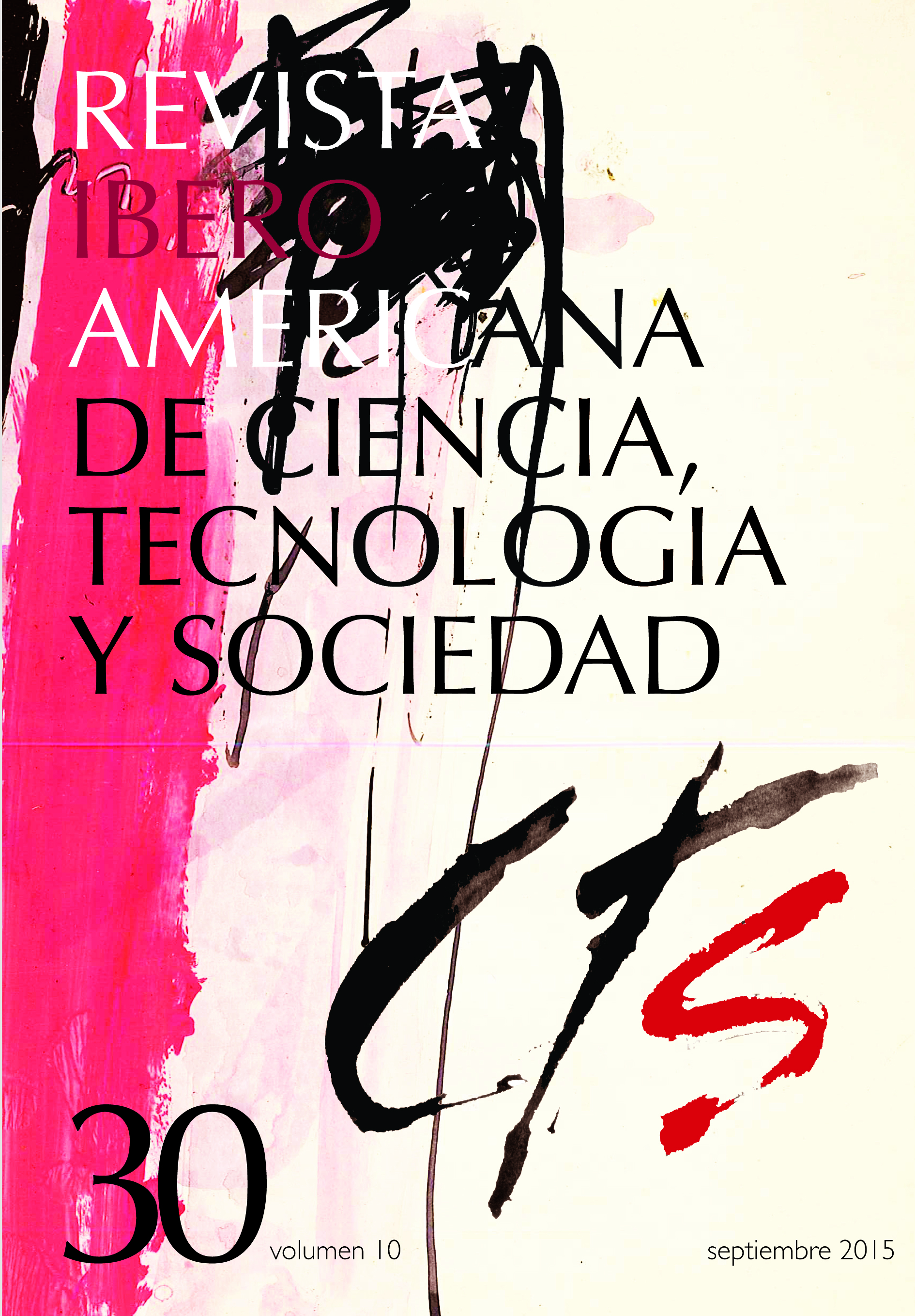Towards a Re-valuation of Philosophy of Technology
An Argument for the Cultural Role of Technology
DOI:
https://doi.org/10.52712/issn.1850-0013-502Keywords:
natural-artificial duality, axiological neutrality, material culture, technological possibilismAbstract
This article aims at a positive assessment of philosophy of technology, as opposed to a pessimistic stance. We identified these points of view on the basis of the critical analysis of three arguments used in the philosophy of technology: hierarchical order, axiological neutrality and the argument of technology as an instrument of power and dominance. Our position holds that the value of philosophy of technology lies on the fact that it studies the ways in which technology facilitates and constitutes a culture, including permanent reflections on ethical and political responsibilities of the participants of such culture on technology uses.
Downloads
References
ARISTÓTELES. (2002): Física, Madrid, Gredos.
BRONCANO, F. (2006): Entre ingenieros y ciudadanos: filosofía de la técnica para días de democracia, Madrid, Montesinos Ensayo.
BRONCANO, F. (2012): La estrategia del simbionte. Cultural material para nuevas humanidades, Salamanca, Delirio.
BUNGE, M. (1966): “Technology as applied science”, Technology and Culture, vol. 7, n°3, pp. 329-347.
CASSIRER, E. (1963): Antropología filosófica: introducción a una filosofía de la cultura, México, Fondo de Cultura Económica.
DAWKINS, R. (2000): El gen egoísta. Las bases biológicas de nuestra conducta, Madrid, Salvat.
ELLUL, J. (2003): La edad de la técnica, Barcelona, Octaedro.
GEERTZ, C. (2003): La interpretación de las culturas, Barcelona, Gedisa.
GONZÁLEZ GARCÍA, M. I.; LÓPEZ CEREZO, J. A. y LUJÁN LÓPEZ, J. L. (1996): Ciencia, tecnología y sociedad: una introducción al estudio social de la ciencia y la tecnología, Madrid, Tecnos.
HABERMAS, J. (1986): La ciencia y la técnica como ideología, Madrid, Tecnos.
HARRIS, M. (1976): El desarrollo de la teoría antropológica. Historia de las teorías de la cultura, Madrid, Siglo XXI.
HEIDEGGER, M. (1994): “La pregunta por la técnica”, Conferencias y artículos, Barcelona, Ediciones del Serbal, pp. 9-37.
HEIDEGGER, M. (1998): Ser y tiempo, Santiago de Chile, Escuela de Filosofía Universitaria.
HORKHEIMER, M. y ADORNO, T. W. (1994): Dialéctica de la Ilustración. Fragmentos Filosóficos, Madrid, Trotta.
INGOLD, T. (2000): The perception of the environment. Essays on livelihood, dwelling and skill, Londres, Routledge.
LATOUR, B. (2008): Reensamblar lo social. Una introducción a la teoría del actor-red, Buenos Aires, Manantial.
LAWLER, D. y VEGA, J. (2009): La respuesta a la pregunta. Metafísica, técnica y valores, Buenos Aires, Editorial Biblos.
LÓPEZ ARAIZA, H. (2012): “Cómo y por qué una filosofía de la tecnología”, Argumentos de Razón Técnica, vol. 15, pp. 111-124.
MUMFORD, L. (2010): El mito de la máquina. Técnica y evolución humana, volumen 1, Logroño, Pepitas de Calabaza.
OLSEN, B. (2003): “Material culture after text: re-membering things”, Norwegian Archaeological Review, vol. 36, n° 2, pp. 87-104.
PLATÓN. (1872): “Las Leyes”, Obras completas, tomo 10, Madrid, Medina y Navarro, pp. 69-106.
PLATÓN (1983): “Gorgias”, Diálogos II Gorgias, Menéxeno, Eutidemo, Menón, Crátilo, Madrid, Gredos, pp. 23-145.
PLATÓN (1997): “Protágoras”, Diálogos, Madrid, Gredos.
POPPER, K. (1962): La lógica de la investigación científica, Madrid, Tecnos.
PROWN, J. D. (1982): “Mind in matter: An introduction to material culture theory and method”, Winterthur Portfolio, vol. 17, n° 1, pp. 1-19.
SCHIFFER, M. B. (1999): The material life of human, Nueva York, Routledge.
SIMONDON, G. (2007): El modo de existencia de los objetos técnicos, Buenos Aires, Prometeo Libros.
SUNDSTRÖM, P. (1998): “Interpreting the notion that technology is value-natural”, Medicine, Health Care and Philosophy, vol. 1, pp. 41-45.
VEGA, J. (2009): “Estado de la cuestión: Filosofía de la tecnología”, Theoria, vol. 66, pp. 323-341.
WITTGESTEIN, L. (1988): Investigaciones filosóficas, Barcelona, Crítica.
Downloads
Published
How to Cite
Issue
Section
License
Copyright (c) 2023 CC Attribution 4.0

This work is licensed under a Creative Commons Attribution 4.0 International License.
All CTS's issues and academic articles are under a CC-BY license.
Since 2007, CTS has provided open and free access to all its contents, including the complete archive of its quarterly edition and the different products presented in its electronic platform. This decision is based on the belief that offering free access to published materials helps to build a greater and better exchange of knowledge.
In turn, for the quarterly edition, CTS allows institutional and thematic repositories, as well as personal web pages, to self-archive articles in their post-print or editorial version, immediately after the publication of the final version of each issue and under the condition that a link to the original source will be incorporated into the self-archive.











